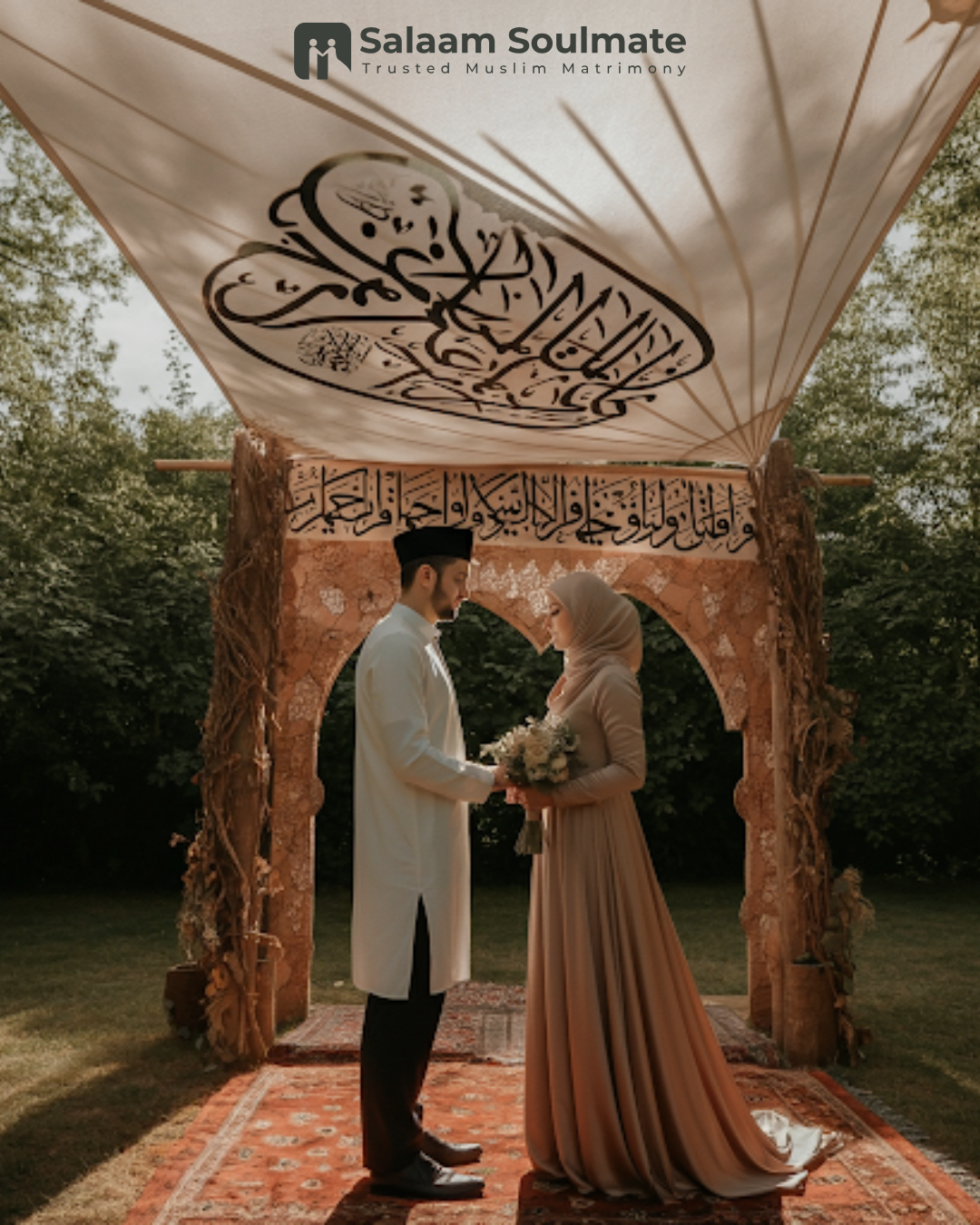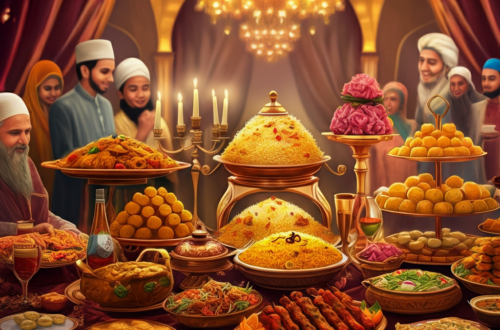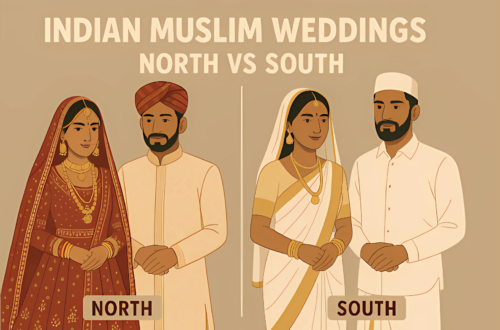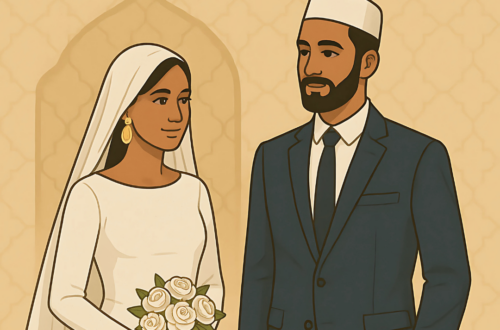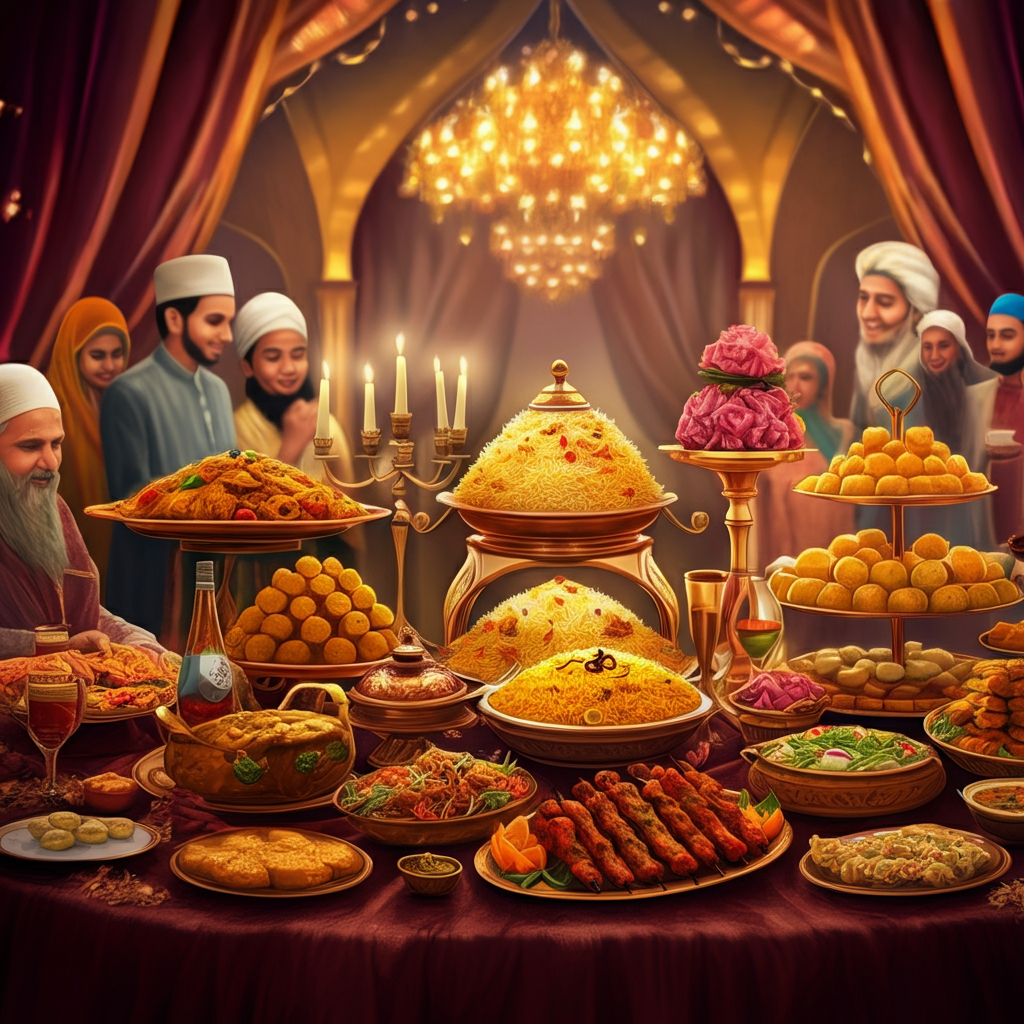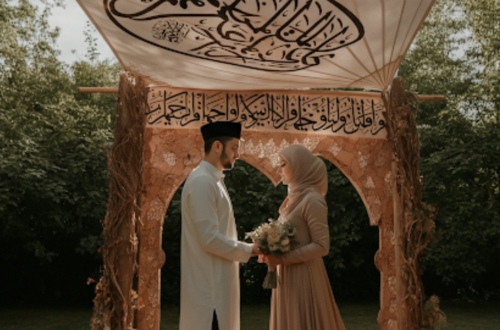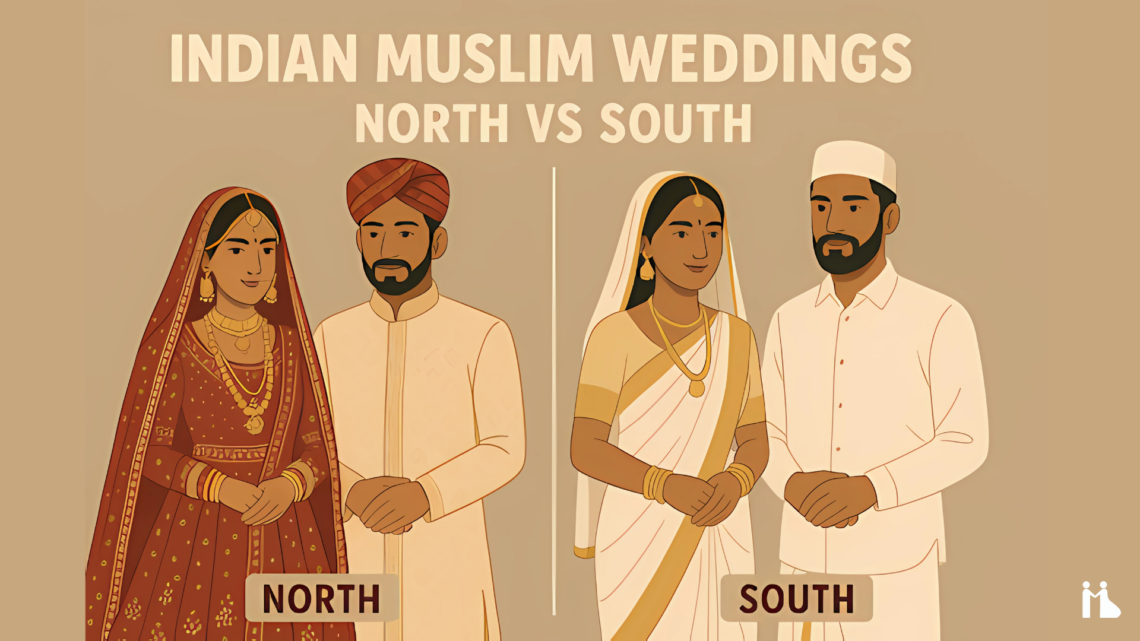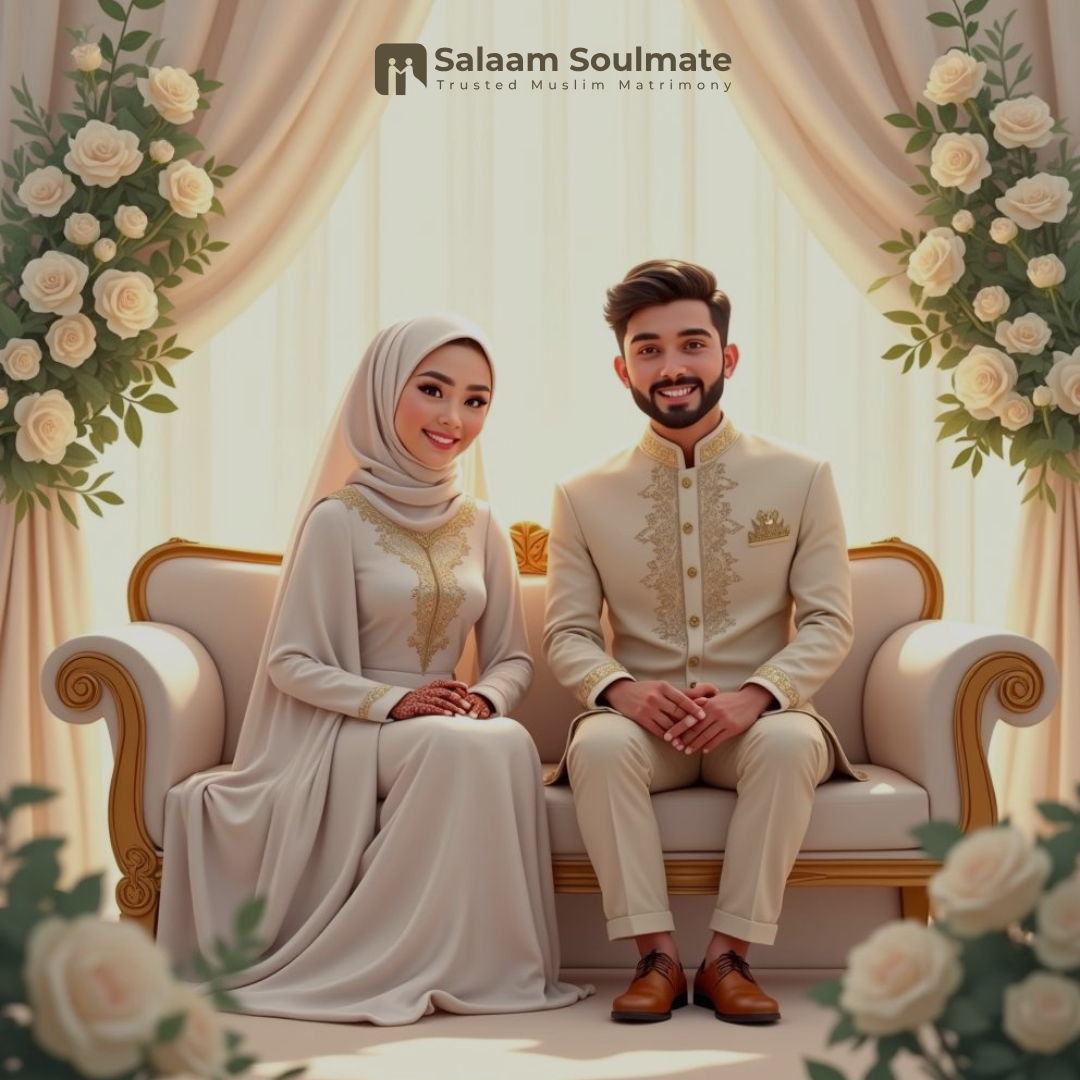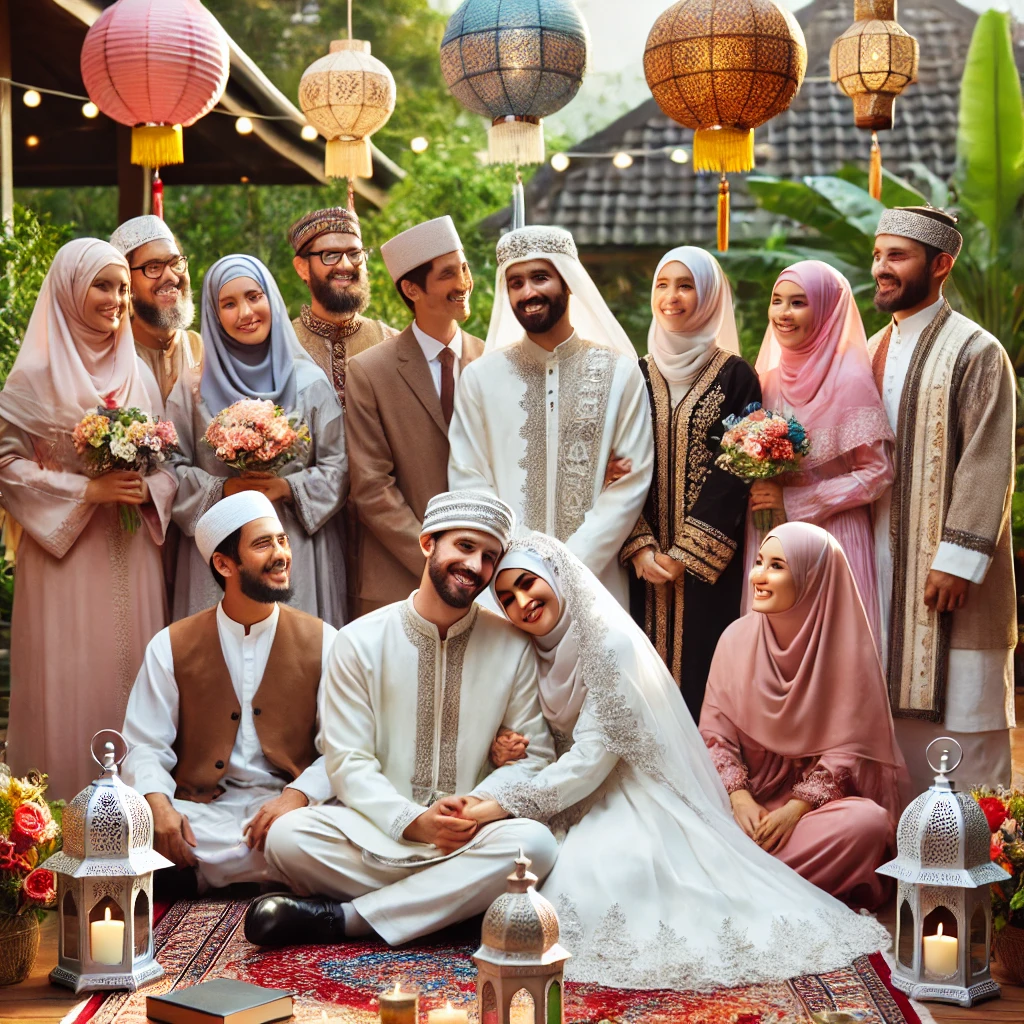Nikah in Islam is far more than a legal agreement; it stands as a profound spiritual act and a divine blessing. It is a sacred union designed by Allah to bring tranquility, mutual love, and compassion between two individuals. Highlighting the significance of Nikah in Islam is the Quranic verse in Surah Ar-Rum (30:21): “And of His signs is that He created for you from yourselves mates that you may find tranquility in them; and He placed between you affection and mercy. Indeed in that are signs for a people who give thought.” This blog will explore the immense spiritual,…
-
-
A Culinary Journey Muslim wedding food traditions are a beautiful blend of culture, spirituality, and celebration. Weddings are a time of joy and unity, and in Muslim cultures, food takes center stage as a symbol of togetherness and gratitude. From elaborate feasts rooted in heritage to evolving modern menus, food forms the heart of these momentous occasions. This blog will explore the richness of Muslim wedding food traditions, highlighting classic dishes, regional variations, modern trends, and the symbolic meaning food holds in these celebrations. Whether you’re planning a wedding, looking to incorporate authentic traditions, or are a food enthusiast curious…
-
Indian Muslim weddings weave a vibrant tapestry of traditions, rituals, and celebrations that showcase the rich cultural diversity within the country. These joyful occasions share a common religious foundation, but the customs and practices differ significantly from one region to another. For example, North and South Indian Muslim weddings display unique traditions influenced by local heritage and culture. This blog highlights the key similarities and differences between Indian Muslim weddings in the North and South. It dives into pre-wedding ceremonies, wedding rituals, attire, music, and more. Whether you’re a wedding planner, part of the Muslim community, or simply curious, this…
-
Islam presents a comprehensive way of life, far more than mere rituals. Marriage holds a particularly sacred and pivotal position within this framework. Muslims view it not as a simple social contract, easily entered into and dissolved, but as a deeply spiritual and enduring bond. This bond builds upon love, mutual respect, and the fulfillment of reciprocal duties between spouses. Within this divinely ordained framework, several elements contribute to its sanctity and the well-being of both partners. Among these crucial components, Mehr (Mahr) stands out as a uniquely significant aspect of an Islamic marriage; it is a mandatory gift the…
-
Indian Muslim weddings, also called Nikahs, are enchanting celebrations steeped in age-old rituals, vibrant attire, and mouthwatering cuisine. These weddings beautifully intertwine Islamic traditions with cultural customs unique to India, creating events full of joy, love, and community spirit. Whether you’re a culture enthusiast or preparing for your own special day, this guide explores the key ceremonies, traditional dishes, and unique elements that define the grandeur of Indian Muslim weddings. Key Rituals of Indian Muslim Weddings 1. Nikah Ceremony The Nikah is the heart of every Indian Muslim wedding. This sacred ceremony officially unites the couple in an Islamic marriage…
-
Muslim Marriage Trends in India: Tradition Meets Modernity India, with its vibrant mix of cultures and traditions, views marriage as a significant milestone in life. For Indian Muslims, marriage goes beyond a personal commitment; it is an important societal and religious institution, steeped in rituals that carry deep meaning. However, as India’s social landscape evolves with urbanization and modernization, Muslim marriages are adapting as well. This article explores Muslim marriage trends in India, showcasing how tradition and modernity are finding a delicate balance. Traditional Foundations of Muslim Marriages The Role of Nikah in Islamic Marriages At the heart of a Muslim…
-
Intercultural marriages are increasingly common in the modern Muslim community, reflecting the global and diverse nature of the ummah. While Islam encourages unity and mutual respect regardless of cultural backgrounds, the journey to an intercultural marriage often involves navigating family dynamics and expectations. Misunderstandings can arise due to cultural differences, and families may struggle to reconcile traditions with the universal principles of Islam. This blog explores the Islamic perspective on intercultural marriages, discusses the role of family, and offers practical guidance for building strong, harmonious relationships. Join India’s leading Muslim Matrimonial platform, salaamsoulmate.com, and connect with your perfect match today!…

